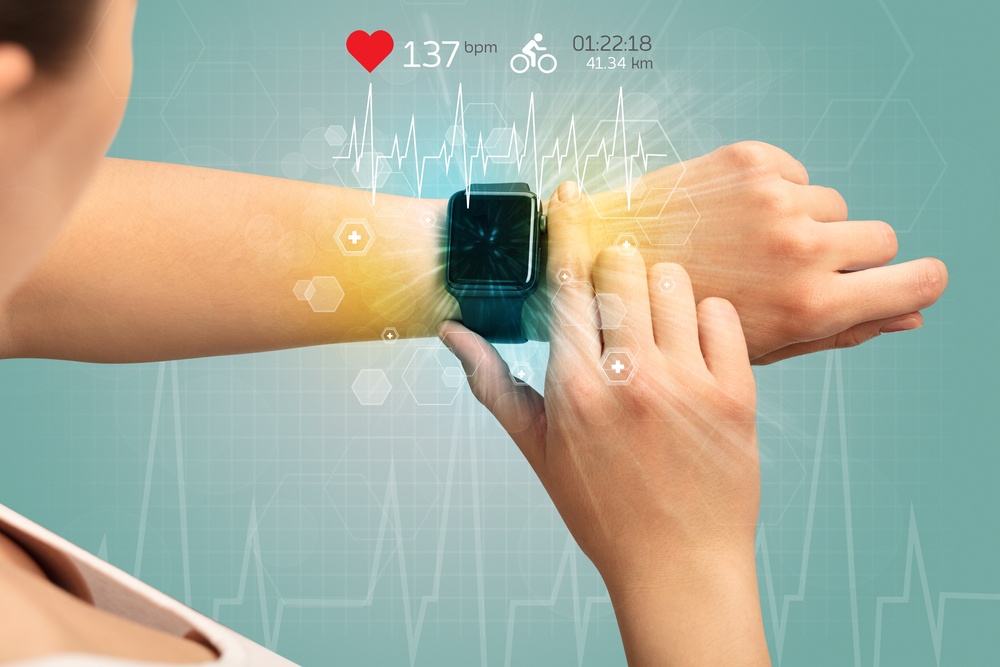



Get new exclusive access to healthcare business reports & breaking news




Want to keep an eye on the health of your ticker and ensure that it’s always in tip-top shape?
A good heart monitor is a handy device tand a reliable workout companion that helps consumers track their physical exercise and training intensity.
Heart monitors have made huge milestones and strides from the heavy, klutzy and uncomfortably cold devices that you’d to strap to your chest. Today, they are stylish, small, packed with cutting-edge features, and can do much more than monitor your heart rate.
Like most modern fitness trackers, these nifty health tech gadgets put a great deal of knowledge in your hands. Most of them record your heart data, which makes it easy for you to share it with your doctor, nutritionist or instructor.
Like anything tech, however, there are scores of heart rate monitors on the market today, and they come in all types, sizes, models, styles, and price tags. So, which is right for you?
We put together this comprehensive guide to help you choose the right heart monitor for your health and fitness needs. We’ll finish it off with the 10 best heart rate monitors available to you in 2020.
The Best Heart Rate Monitor for People With High Blood Pressure
HeartGuide by Omron is our top pick for the best heart monitor, and with good reason. This is a heart rate monitor, sleep monitor, discreet blood pressure tracker, and fitness tracker, all rolled into one sleek-looking smartwatch.
Traditionally, blood pressure is read using inflatable cuffs which are often tangly, messy and heavy. With HeartGuide, that’s a thing of the past. It boasts a second strap that’s inflatable, acting as a miniature cuff on your wrist.
This makes it easy for the wearer to take a blood pressure reading on the go. In less than a minute, it takes your diastolic and systolic pressure with the same level of accuracy as hospital sphygmometers.
It’s also jam-packed with other features and technology under the hood. When it comes to activity tracking, it monitors your distance, steps and calories zapped. As for sleep, the tracker observes your sleep quality, sleep pattern, sleep duration, and other aspects.
HeartGuide can also deliver push notifications, uses a companion app to report your heart/fitness data, and most importantly has FDA approval. All up, if you are interested in a smartwatch that tracks your heart rate, blood pressure, and all-day activity, HeartGuide is for you.
Pros
Ease of use – HeartGuide is a blood pressure smartwatch that’s far much easier and more comfortable to use and wear.
Thanks to state of the art sensors that are well-positioned, the device provides accurate readings. In fact, it delivers the same level of precision as conventional arm blood pressure takers used in major hospitals.
It helps you see how your heart health is fairing on by comparing your readings with American Heart Association guidelines.
More than tracking – it can help you diagnose any signs of sleep apnea
It has FDA clearance for extra peace of mind.
Triple duty – it watches your sleep, tracks your fitness, and monitors your heart and blood pressure.
Cons
The device, especially the face, is a little chunky, making it a little klutzy to wear for people with smaller wrists.
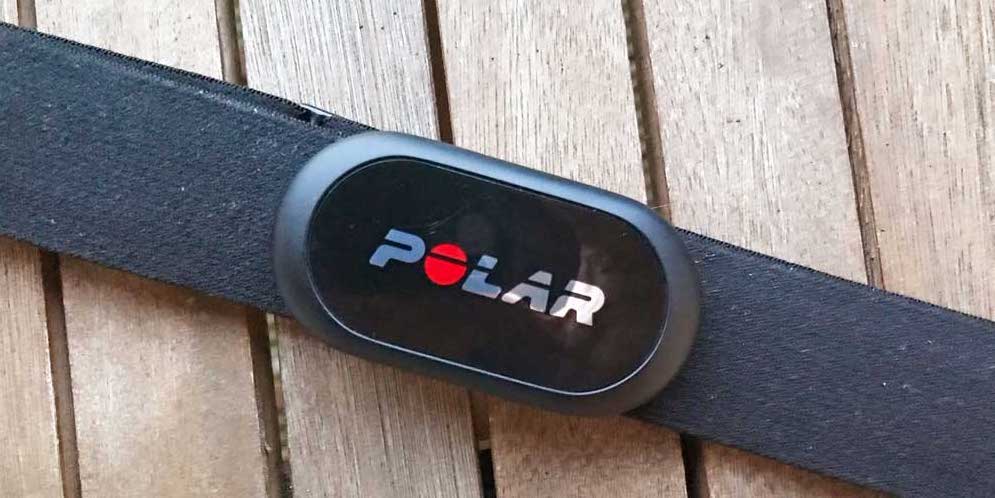

Best Heart Monitor for Internal Memory
Like Omron Healthcare, Polar is a company that’s hinged in the heart health industry. The H10 which comes with a sub-$100 price tag has everything going for it. It offers accurate heart rate readings, has a good battery life, and is waterproof up to 50m.
It has onboard memory so it can store your heart data when you are exercising, on the road or not near your phone/computer. It is worn around the chest at the sternum which might not be for everyone.
On the up and up, Polar H10 is comfortable, water-resistant, and stays put in during high intensity.
Pros
It’s waterproof up to standard 50m, which means you can use it in rain, swim with it and so forth.
It can store up to 100 hours of data
It’s comfortable and doesn’t chafe your skin
It works independently and does not require a smartphone close-by to work
Polar H10 takes pretty accurate heart rate readings consistently
The battery life is decent, better than most monitors in the price range
Cons
Some features like GymLink has been found to lag on some occasions
You can be charged for pretty standard features, which can add up on the costs of maintenance.


There are a ton of expenses that go into your fitness. You buy a gym membership, score a few nutritional supplements, hiking shoes, swimming outfit, and whatnot — nothing is exactly cheap. That’s why it makes a lot of sense to save as much as you can when buying your next heart monitor.
Lezyne’s Heart Rate Flow links via Bluetooth to your bike, smartwatch, smartphone, and computer. It features a long-lasting coin-sized battery, it’s easy to maintain, and most importantly takes your heart rate. If you are a budget shopper, you’ll love that it costs under 50 bucks.
Overall, this is a decent heart monitor for those who want to stay on top of their heart health and fitness on the cheap.
Pros
Quite affordable – you’ll have to shell out less than $50 to get one.
Offers great value – it has features found in high-end monitors but for a far cheaper price.
Delivers reliable data
It’s very lightweight
Cons
It’s not ANT+ enabled which means it isn’t compatible with most devices
It only comes with basic technology, with no onboard GPS.
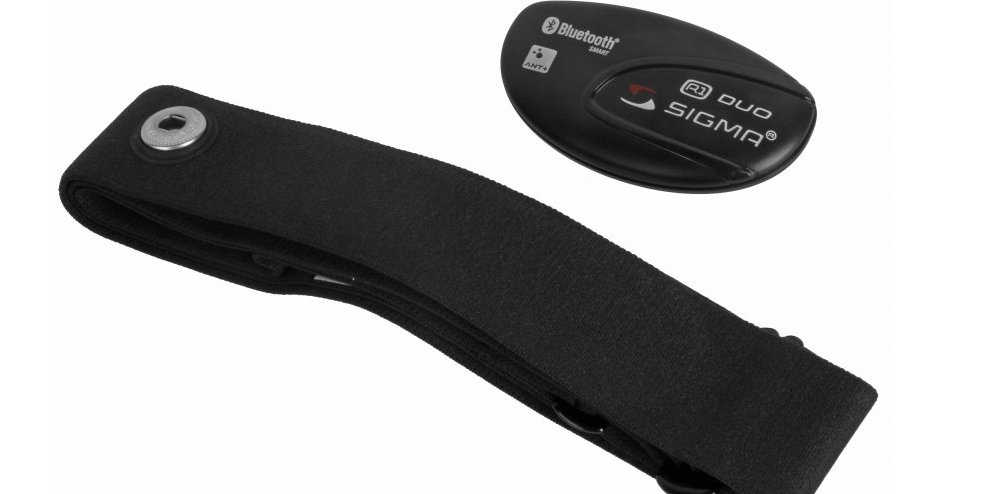

Best Heart Monitor for Cycling
Sigma R1 is a chest strap that connects to your smartphone and bike computer using either ANT+ or Bluetooth technology. The construction quality is superb, readings accurate, and the device is simple yet functional.
Compared to most chest straps, it stays steady, works unobtrusively, and does not require charging. You can easily turn off and on the interaction with the smartphone app.
Overall, Sigma R1 is a smart choice for any biker, gym enthusiast and pretty much any sportsperson.
Pros
It compatible and can pair with just about any device, from your mobile to bike computer.
It stays put even during intense workouts and bike rides
Offers both Bluetooth and ANT+ connectivity
It delivers great value for your money
Cons
It can chafe the skin. If you have sensitive skin, this chest strap can be painful.
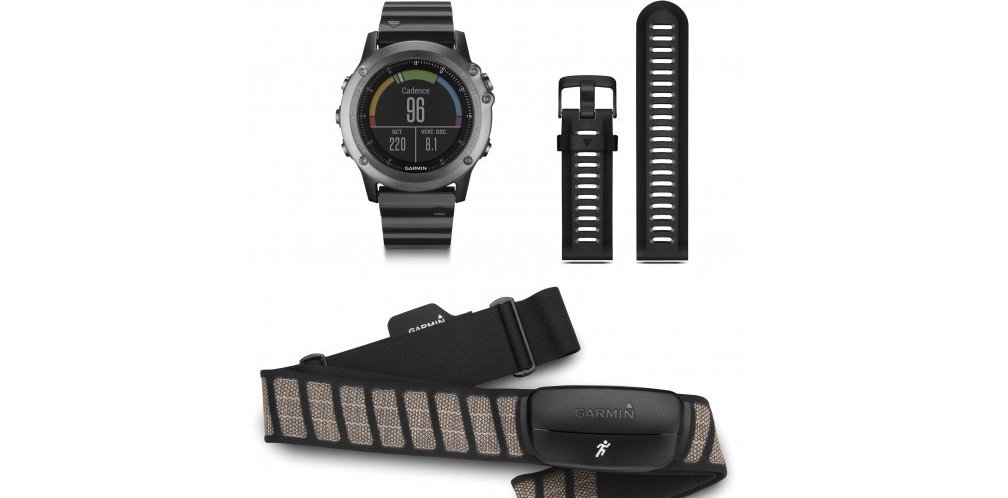

Best Heart Monitor for Value
Here’s another feature-rich heart rate monitor that you can garner for less than $100. This is a unique HRM that’s perfect for fitness fanatics who are fond of numbers. It has an onboard accelerometer and compatible with several fitness trackers like tactic Bravo, Fenix 3, and Forerunner 735XT.
It tracks 6 advanced metrics — vertical ratio, stride length, ground contact balance, ground contact time, oscillation, and cadence.
Pros
Gather 6 advanced activity stats when used in conjunction with a compatible fitness tracker
It is stylish and quite comfortable to wear
The heart rate readings from the device are accurate
Cons
It isn’t machine washable
It requires a compatible tracker to collect fitness stats
Only works via ANT+, no Bluetooth or GPS
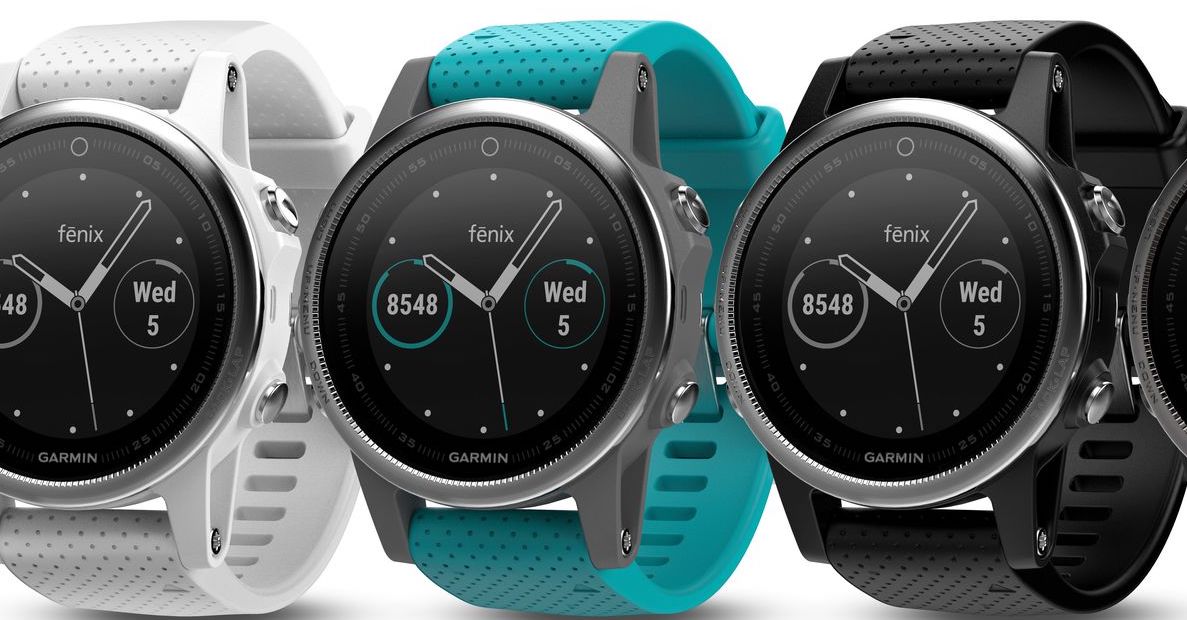

Best Heart Monitor considered a Luxury
Garmin has always set the bar high in the heart rate sector. The devices in its Fenix series are small, accurate, and durable. And Fenix 5 follows suit. It has a better battery, a large display, and more functions than its predecessor.
It connects to many devices via both Bluetooth and ANT+, which makes it easy to analyze and make sense of your heart and fitness data. It also keeps your data in-sync across all connected devices.
The heart rate sensor is fairly accurate. It also comes with an altitude meter, accurate GPS, compass, temp reader, sleep tracker, and ConnectIQ app. When it comes to design, Garmin Fenix 5 is a clear winner with a luxury feel and look to it. Unfortunately, this gadget comes with a sobering price tag, but you get probably the most holistic luxury and multi-activity heart monitor out there.
Pros
Fenix 5 is well-designed inside out, offering a luxury appearance that most smartwatch wearers are after.
Good battery life, making sure that it works all day and night without disruption
It comes with a long list of bells & whistles, as well as functions
It is accurate and innovative too
Cons
The price tag can be a little scary for some people
No onboard music player, which isn’t actually a deal-breaker for most buyers
Which heart rate monitor is best for you?
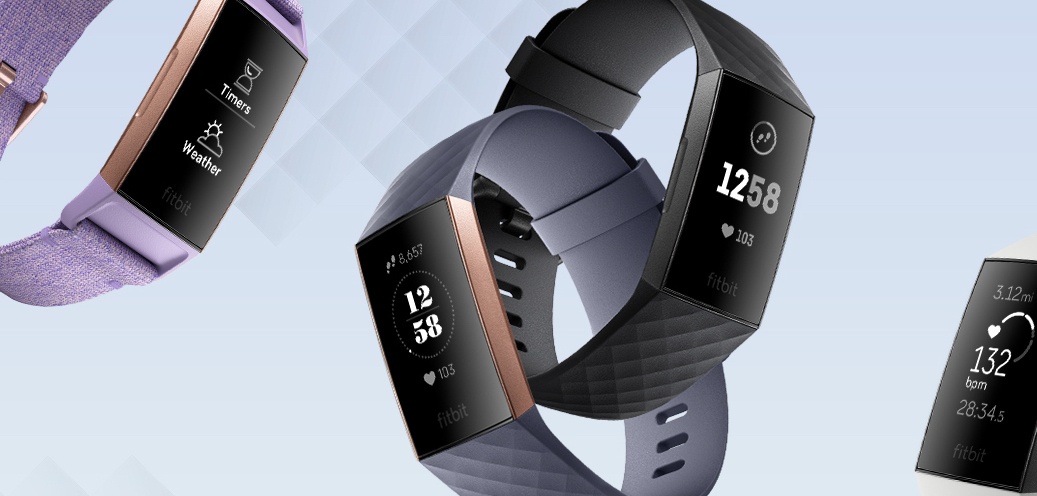

Fitbit is a titan in the fitness device market, and Charge 3 is one of their best creations yet. It’s a next-gen smartwatch that pulls double duty as a heart rate monitor and fitness tracker. The new armband design is sleek, waterproof up to 50m, and delivers a decent level of accuracy and usability.
You will love Fitbit’s all-in-one approach to features in Charge 3. It uses Fitbit’s own PurePulse tech to monitor your heart rate and now comes with a cutting-edge SpO2 sensor that keeps a tab on your sleep. The latter is so robust that it’s been touted to help diagnose sleep apnea.
Like most fitness gadgets, it can also count your steps, track calories burned, and record a plethora of other all-day activities. Even better, if you are feeling a little fuzzy or exhausted, Charge 3 is tuned to walk you through some mindfulness and breathing exercises.
The touchscreen display now has more real estate (reportedly close to one-third bigger than its predecessor), the battery life is commendable, and it uses your phone’s GPS for connectivity.
Talking workouts, it lets you pick from over 15 exercise modes, including swimming, biking, hiking and running, just to name a few. From the aesthetics viewpoint, you can choose from several stylish colors, styles, and bands that you can swap to match your outfit, mood, and taste.
Overall, Fitbit Charge 3 is the right heart monitor for you if you are looking to track your heart health, fitness, sleep and more with a reasonably pocket-friendly wrist-worn device whose battery lasts more than a week.
Pros
It comes with a more powerful battery which can last more than 7 days between charges. You can use it all week without worrying that it’ll run out of juice.
Fitbit has upped its touchscreen game, increasing the display by 30% to give you more to see and touch.
It’s fitted with revolutionary SpO2 sensors that analyze several aspects of your sleep. Fitbit seems to be setting the gold standard for sleep-tracking. By monitoring your blood oxygenation levels, it can tell a lot about your sleep, including when it’s disrupted, something that can help with diagnosing conditions like sleep apnea.
24/7 activity tracking makes sure that you are always on top of your fitness and health.
A great accessory for swimming. It’s water-resistant and waterproof up to 50m.
Cons
It lacks built-in GPS, which is surprising because most HRMs in the category have it on board.
The device might not keep up with high-intensity activities, but it’ll get you the right results for road runs, exercising in the gym and other light workouts.
Not exactly the most accurate heart rate monitor.
There are myriads of reasons why it’s a no-brainer to add a heart rate monitor to your fitness toolkit. Here are the top benefits of using this device:
According to the American Heart Association, monitoring your heart rate closely when exercising offers a two-prong advantage. First, it helps you know how hard you are working out and if it’s too strenuous. Secondly, it tells you if your fitness has improved or not with time.
Yes, there are several other ways to gauge how effective your workouts are, including how tired you’re, how hard you are breathing, and so on. Keeping track of your heart rate, however, is the most reliable way to judge the efficacy of your exercises.
First off, heart rate monitors generate objective data that you can analyze from several health and fitness angles. It shows you how intense your workouts are in terms so you can tell if you are getting results.
Overtraining or working out too strenuously can take a toll on your body, and your heart will probably bear the biggest brunt. By measuring how hard you are exercising, you will certainly ensure that you will not overtrain or overstrain.
With advanced heart monitors, you can tailor the intensity of your training and workouts down to your age group, weight, and other body aspects. Safe as they may be, running, weight lifting or swimming can lower your motivation and can sometimes lead to serious injuries.
With a robust heart monitor, that’ll be a thing of the past, and your exercises will be safer and more effective.
After an intense workout, your muscle, heart, and other involved parts of the body should recover adequately before you embark on your next session. A heart rate monitor will help gauge your recovery because a faster rate of recovery means that your heart capacity is increasing.
A heart rate monitor is a useful exercise companion for everyone, from newbies to pro athletes. But, it can also save lives, especially for individuals that are at risk of cardiovascular problems like stroke, heart attack or heart failure.
State of the art heart monitors like HeartGuide by Omron allows users to take blood pressure readings on the go so that their doctors can monitor their conditions.
This device can act just like your personal coach, telling you when to increase the intensity of your workouts, when to slow down your training, and when you have hit a sweet spot. And with the level of accuracy that heart rate monitoring delivers, it’s safe to say this device can be more than a personal coach.
As you can see, heart rate monitors are very helpful. Whether you have a cardiovascular condition that you need to manage, want to get the most out of your workouts or just looking to stay holistically fit, a quality heart monitoring device is what the doctor prescribed.
But, which heart monitor is perfect for your health or fitness needs? Let’s take a look at key factors to keep in mind when selecting the right heart rate monitor for your budget, preference, and goals.
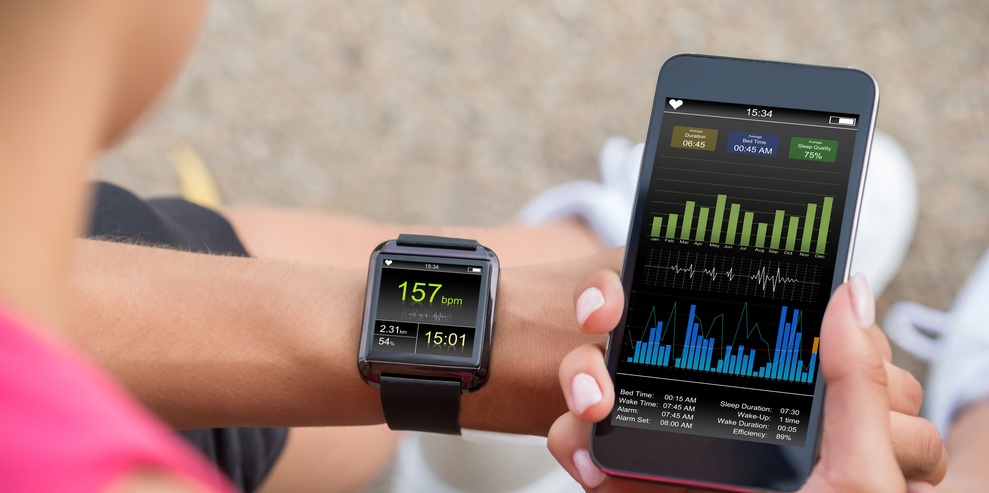

Not all heart rate monitors are created equal, right from how they work to how they are worn.
As such, when you are searching for the right monitor, the most important question is whether to go for the run-of-the-mill chest straps, which are designed to use electrical pulses to take your heart rate. Or, a modern wrist-worn monitor that uses optical sensors and technology to read heart rate.
Optical sensors are what makes heart rate wearables like Apple Watch, Omron HeartGuide, and Fitbit gadgets so accurate and easy to use. This technology is leverage in headphones that take heart rate reading using in-ear sensors.
Your choice between chest-strapped and wrist-worn options can make a huge difference when it comes to comfort, convenience, and accuracy.
As you might expect, wrist wearables with optical sensors are by far more convenient and comfortable than their chest-worn counterparts. If you are working out or exercising steadily, these wrist-worn monitors should do a bang-up.
Overall, chest straps tend to deliver more accurate heart rate readings because wrist wearables can be affected by the intensity of your workouts. This is something subject to debate because some wearables devices have better sensors than others.
There’s also a growing breed of wearables that are designed to be worn on the upper arm or forearm, which promise a higher level of accuracy. Like chest straps, however, you need to get one that fits snugly around your arm to get accurate heart rate readings.
When it comes to ease of use and comfort, armband monitors take the mantle. They wear snugly around the arm, making it easy and quick to adjust it when you are running, jogging or exercising. The best part is that they don’t fit too tight, so they don’t chafe the skin.
Some wrist wearables feature LED lights that flash different colors to indicate the different zone of heart rate you are in. This level of visual feedback is not available for chest straps, and they make armbands much easier and comfortable to wear.
Chest straps don’t score big points in terms of comfort. True, most of these bands are meant to wrap comfortably around the chest. If not sufficiently tight, the chest strap can slide out of place, and it’s hard to adjust while you are in motion. Even worse, it can cause chafing of your skin.
ANT+ is a technology that precedes Bluetooth and has become the staple of workout devices, like treadmills, spinning cycles, and other sports equipment. This wireless tech can still be found in some low-end heart monitors. However, Bluetooth-enabled HRMs can integrate easily with your smartphone and other smart devices.
Most heart monitors double up as fitness trackers, electrocardiogram (ECG), EKG or sleep monitors, while others are full-feature smartwatches. Whatever you are looking for in your device, the more features it possesses the better, but you might have to be content with a higher price tag.
Taking all these parameters and more, we have rounded up the top 10 best HRMs you can buy in 2020. Whether you’re a fitness fanatic, bodybuilder or a regular exerciser, there’s something for every fitness level, budget, and style on this list.
You may also be interested in our guide on Best Pedometers of 2020